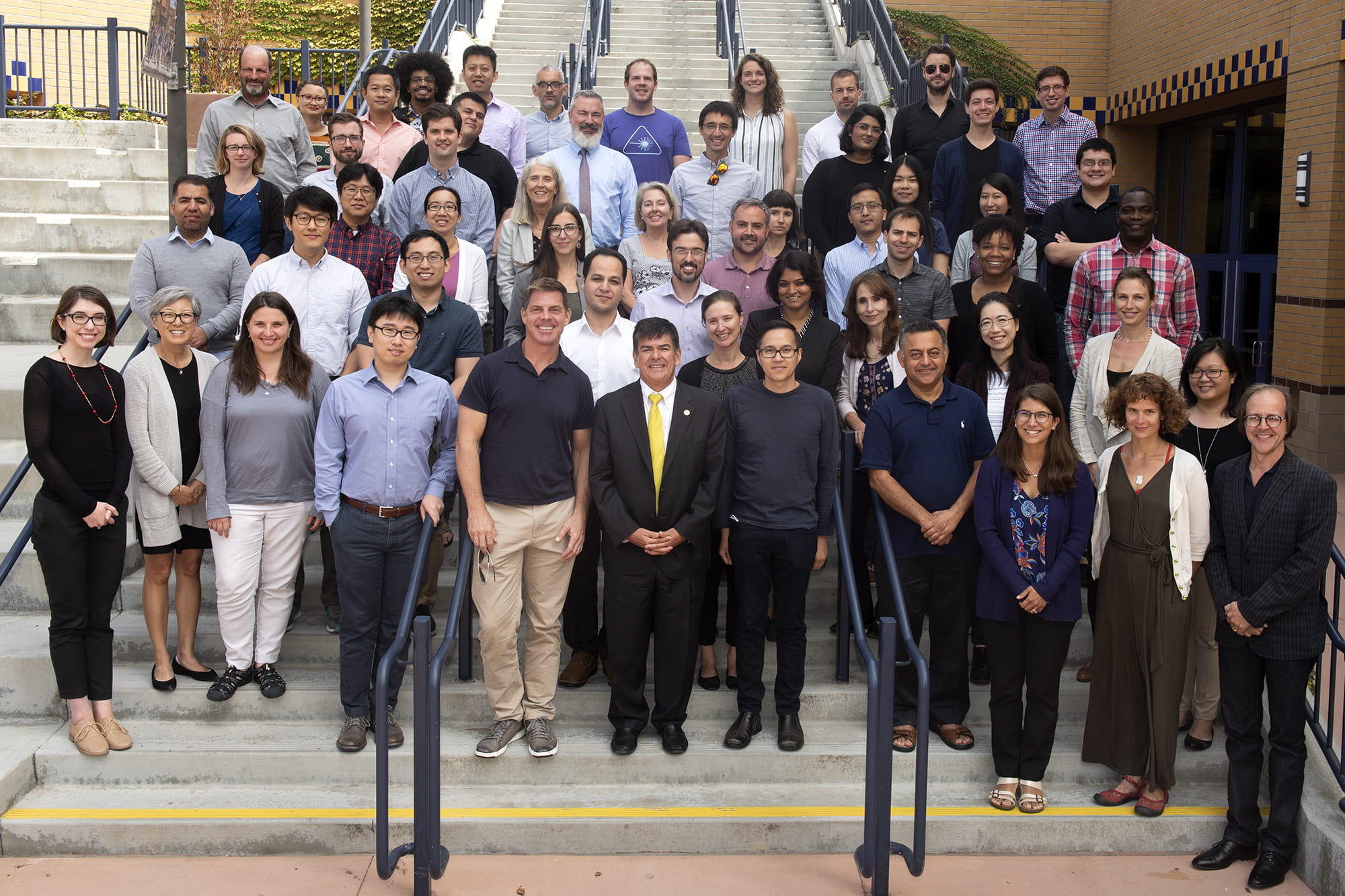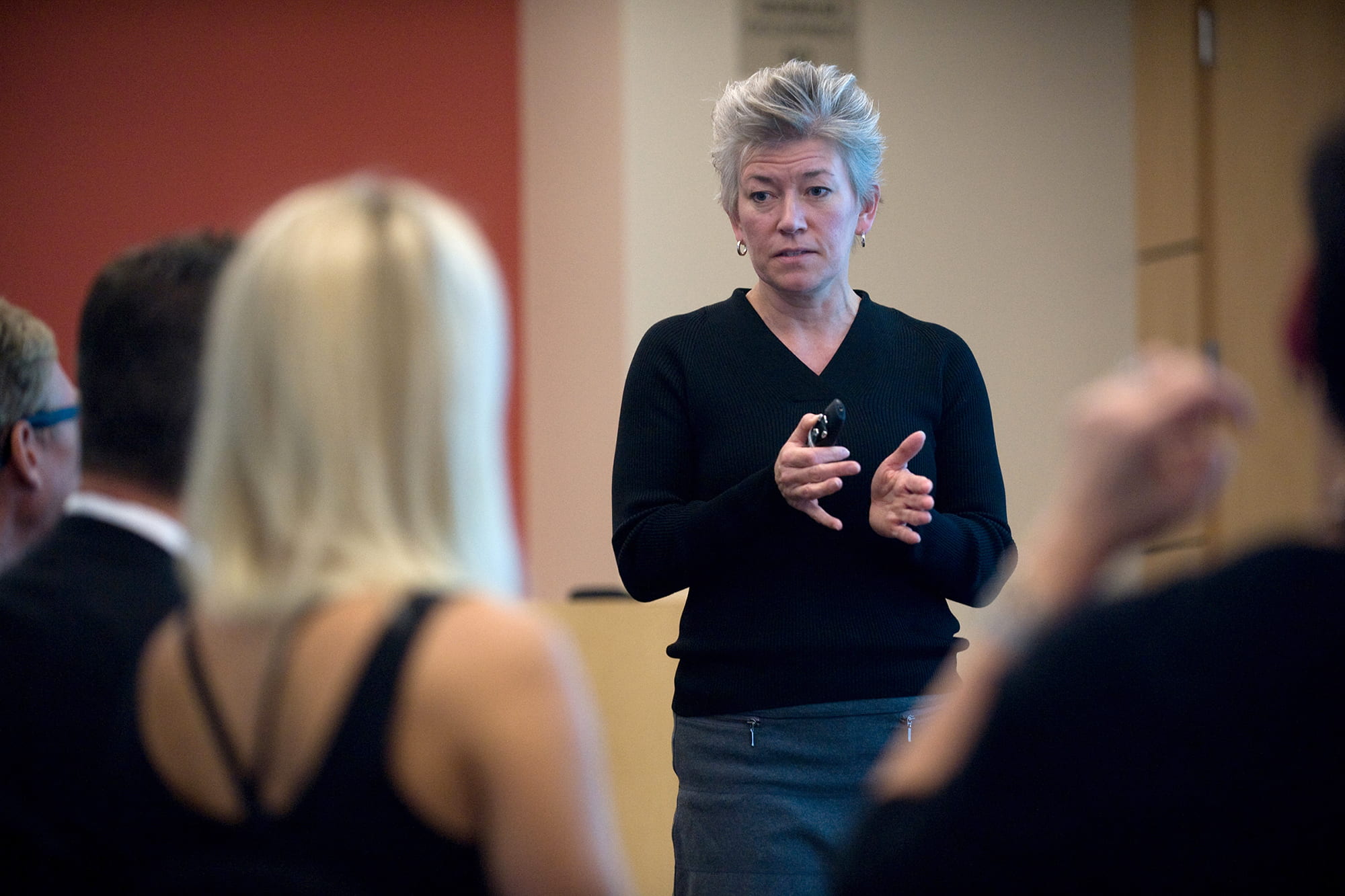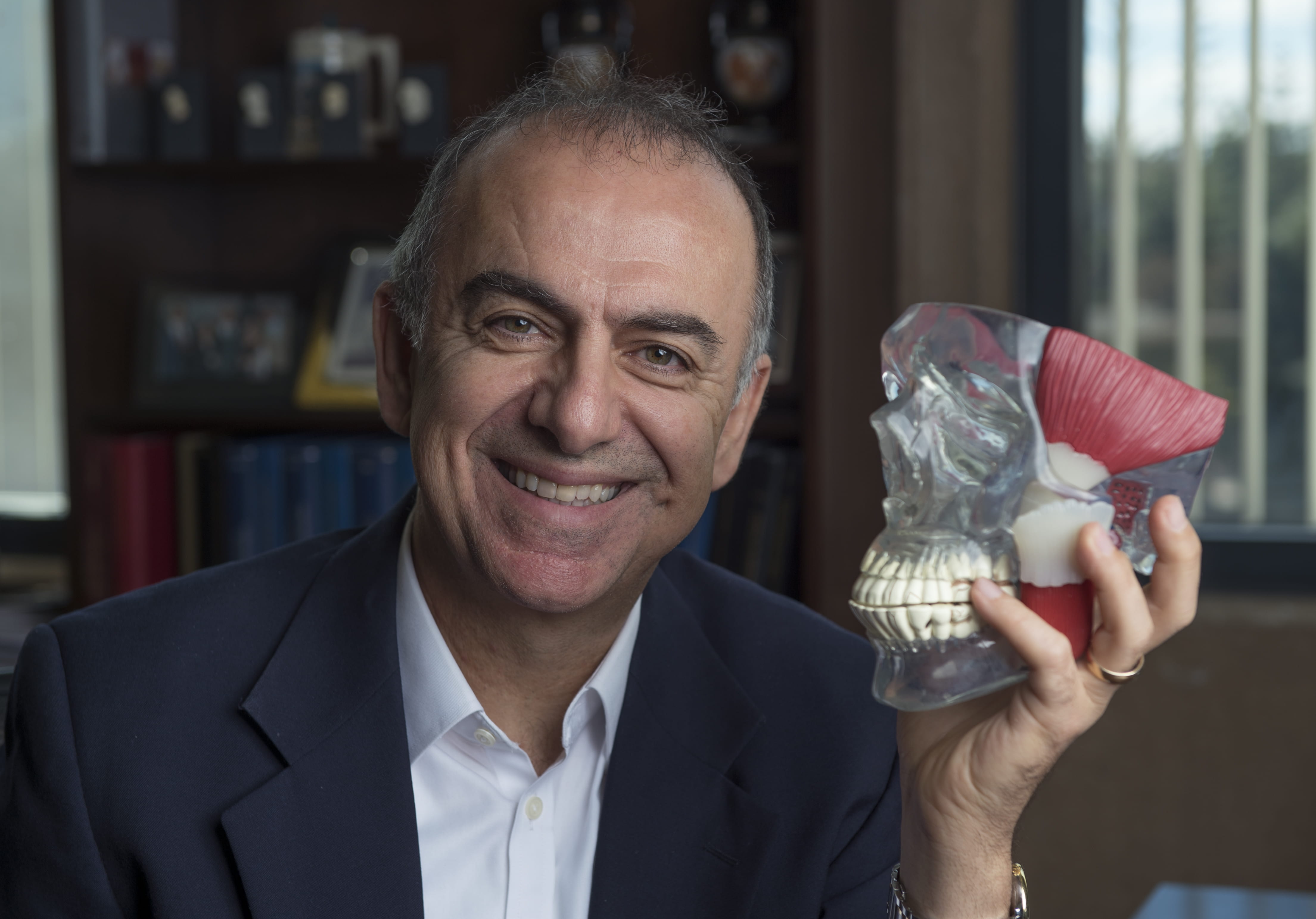Circadian clock watchers
Selma Masri and her lab team explore the links between cancer and our internal timekeeper

There was a TV game show in the 1950s called “Beat the Clock.”
“Beat the clock” could also refer to the way modern life plays havoc with our circadian clocks – to the point where deadly diseases can fester. Studying how that happens – and ways we can treat and potentially prevent it – is the life’s work of Selma Masri, Ph.D., assistant professor of biological chemistry in UCI’s School of Medicine.
“The circadian clock is our biological pacemaker,” she explains. “This is our internal clock that keeps time relative to the daily solar cycles. Light is an important time [indicator] that trains our internal clock and sets its pace relative to day/night cycles.”
Masri continues: “What’s amazing and fascinating about the circadian clock is that it’s genetically hardwired into the cells in our body. This means that that hardwiring system allows for the biological clock to interpret daily cues and self-regulate to maintain timing with the external environment. Light input is perceived through the eye and functions to synchronize the external light cycle with our internal clocks.”
But this system is prone to instability. A genetic disruption or mutation can alter the function of genes and the proteins they regulate – sometimes with disastrous effects. This can include perturbing, deregulating or rewiring the function of our circadian clock, which operates throughout the body. For several years, the Masri lab has researched this phenomenon in relation to lung and colorectal cancer.
“We took a mouse model and created a genetic mutation that renders the circadian clock nonfunctional in the intestines,” Masri says. “We crossed those mice with additional mice disposed to intestinal tumor formation. We found that genetic disruption of the clock accelerates colorectal cancer.”
But that’s not the only way the circadian clock can be linked to colorectal cancer.
“We also took mice inclined to getting colorectal cancer and created a paradigm shift in the lab where we changed the light cycle to basically model night shift work three days a week,” Masri says. “This is what we call environmental disruption of the clock, because you can create changes to the sleep-wake cycles, light exposure and/or feeding/fasting rhythms that negatively affect the circadian clock. We discovered that altering the light schedule resulted in a significant increase in the incidence of colorectal cancer in mice.”
Colorectal cancer has typically been a disease associated with adults over age 50. Therefore, that was the age at which the American Cancer Society recommended that colonoscopy screenings begin.
“What has been reported by the National Cancer Institute, the ACS and others is that there’s a very alarming increase in young-onset colorectal cancer,” Masri says. “These patients are now developing colon cancer in their 20s and 30s.”
As a result, she notes, the ACS now advises colonoscopies starting at age 45, although given the troubling new data, she believes “this age recommendation could change. Patients in their 20s and 30s are being diagnosed with very late-stage disease because of a lack of screening and early detection.”
No single cause has been agreed upon yet for the uptick in young-onset colorectal cancer.
“We think that this has a lot to do with not just genetics but also lifestyle and environmental conditions that are linked to the circadian clock,” Masri says. “We believe that diet – what you eat and when you eat it – overall metabolic health and the impact on the gut microbiome, which basically regulates intestinal health, are all important factors. And they’re intimately linked with the circadian clock and are controlled by sleep-wake cycles, extended light exposure and meal timing.”
Her lab is currently looking at this fundamental link between circadian rhythms and cancer and what happens when homeostasis in the body is altered. The goal is to shed light on cancer prevention.
“If we can nip it in the bud – actually prevent colon cancer – that’s really the most important aspect of what we’re trying to do as researchers,” Masri says.
One challenge is that society cannot eliminate some behaviors known to increase disease risks. For instance, epidemiological data shows that nurses who work night shifts for extended periods have higher rates of ailments such as breast cancer. “What’s important is having certain guidelines in place for shift workers aimed at mitigating the negative impact of disruption of circadian rhythms,” Masri says.
Another important area of circadian research is chronotherapy, or the timing of drug administration. “Chronotherapy concerns the optimal time of day for drug delivery to increase efficacy while also decreasing off-target effects,” Masri explains. “This relates to several types of medications that are given for treating many diseases as well as chemotherapies used in cancer treatment.”
She says her lab’s work would not be possible without multidisciplinary collaborations on the Irvine campus and at UCI Medical Center, in Orange. Disease-oriented teams “facilitate wonderful interactions between basic scientists, clinicians and physician researchers,” Masri says. “This gives us the ability, for example, to get patient samples.
“In collaboration with professor Marian Waterman, professor Rob Edwards and the Experimental Tissue Resource, we collect surgically resected colon tissue to perform experiments to define the circadian properties of patients. From this tissue, we develop intestinal ‘organoids,’ which are 3D stem cell-based models that grow into a mini-gut in the lab. These organoids are remarkable and allow us to study the properties of that patient to better understand their disease.”
She notes that the lab’s research also depends on support from the School of Medicine, including the Department of Biological Chemistry and the Center for Epigenetics and Metabolism, as well as UCI’s Cancer Research Institute.
“We have a lot of cross-collaboration with the medical center,” Masri adds. “My lab is on the Irvine campus, but our hospital is in Orange, and we still can facilitate discussions, cross-collaboration and acquisition of patient material for research purposes.”
She’s particularly grateful for the backing of Dr. Richard Van Etten, director of the Chao Family Comprehensive Cancer Center: “We were awarded seed funding for this work, support that comes from initiatives such as the Anti-Cancer Challenge, which raises awareness and funds for cancer research in Orange County.”
In fact, her lab has twice received Anti-Cancer Challenge funding – and Masri is excited that the ride/run/walk is scheduled to be in-person this October.
If you want to learn more about supporting this or other activities at UCI, please visit the Brilliant Future website at https://brilliantfuture.uci.edu. Publicly launched on Oct. 4, 2019, the Brilliant Future campaign aims to raise awareness and support for UCI. By engaging 75,000 alumni and garnering $2 billion in philanthropic investment, UCI seeks to reach new heights of excellence in student success, health and wellness, research and more. The School of Medicine plays a vital role in the success of the campaign. Learn more by visiting https://brilliantfuture.uci.edu/uci-school-of-medicine.


